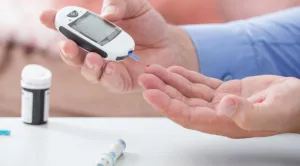HPV Awareness: Breaking Down Taboos to Save Lives
Human Papillomavirus (HPV) is a common virus, but misunderstandings and social taboos surrounding its transmission contribute to a significant number of preventable deaths among women. Increased awareness and open conversations are crucial to combat this issue effectively.
Understanding HPV Transmission
HPV is primarily transmitted through skin-to-skin contact, often during sexual activity. However, many people are unaware of this, leading to delayed diagnoses and increased risk.
- Direct skin contact is the main mode of transmission.
- It’s not solely linked to sexual intercourse; any skin-to-skin contact in the genital area can spread the virus.
- Many individuals are asymptomatic, meaning they carry the virus without showing symptoms.
The Consequences of Lack of Awareness
The lack of knowledge about HPV and its transmission has several detrimental consequences:
- Delayed Screening: Without awareness, women may not undergo regular screenings, such as Pap tests, which can detect cervical changes caused by HPV.
- Increased Cervical Cancer Risk: Persistent HPV infections can lead to cervical cancer, a leading cause of cancer-related deaths among women globally.
- Social Stigma: Misconceptions about HPV can lead to social stigma and shame, preventing individuals from seeking information or medical help.
Breaking the Taboos and Raising Awareness
Overcoming the challenges requires a multifaceted approach:
- Education: Comprehensive sexual health education should be implemented in schools and communities, providing accurate information about HPV and its transmission.
- Open Dialogue: Encouraging open and honest conversations about sexual health can help break down taboos and reduce stigma.
- Vaccination: HPV vaccines are available and highly effective in preventing HPV infections and associated cancers. Promoting vaccination programs is essential.
- Regular Screening: Women should be encouraged to undergo regular cervical cancer screenings, such as Pap tests and HPV tests, to detect any abnormalities early.
The Role of Healthcare Professionals
Healthcare providers play a critical role in raising awareness and dispelling myths about HPV.
- Providing accurate information to patients.
- Addressing concerns and anxieties related to HPV.
- Promoting HPV vaccination and screening.
Final Overview
Addressing the taboos and knowledge gaps surrounding HPV is vital for preventing unnecessary suffering and premature deaths. By promoting education, open communication, vaccination, and regular screening, we can empower individuals to protect their health and well-being. Let’s work together to create a future where HPV is no longer a silent threat.




+ There are no comments
Add yours